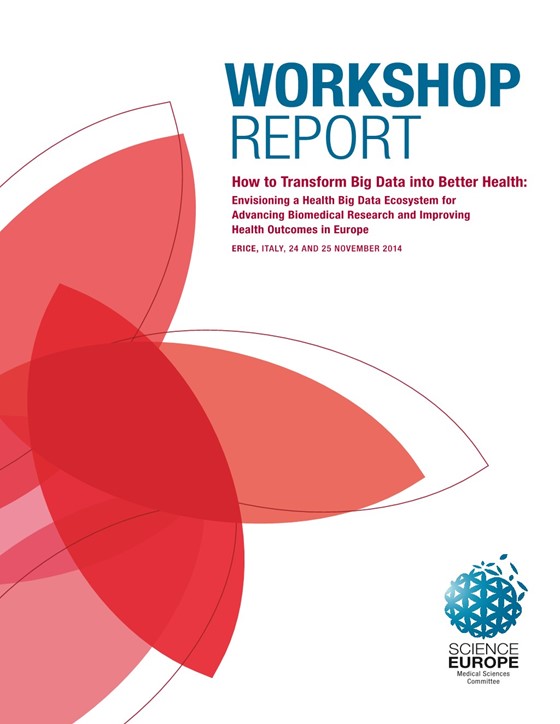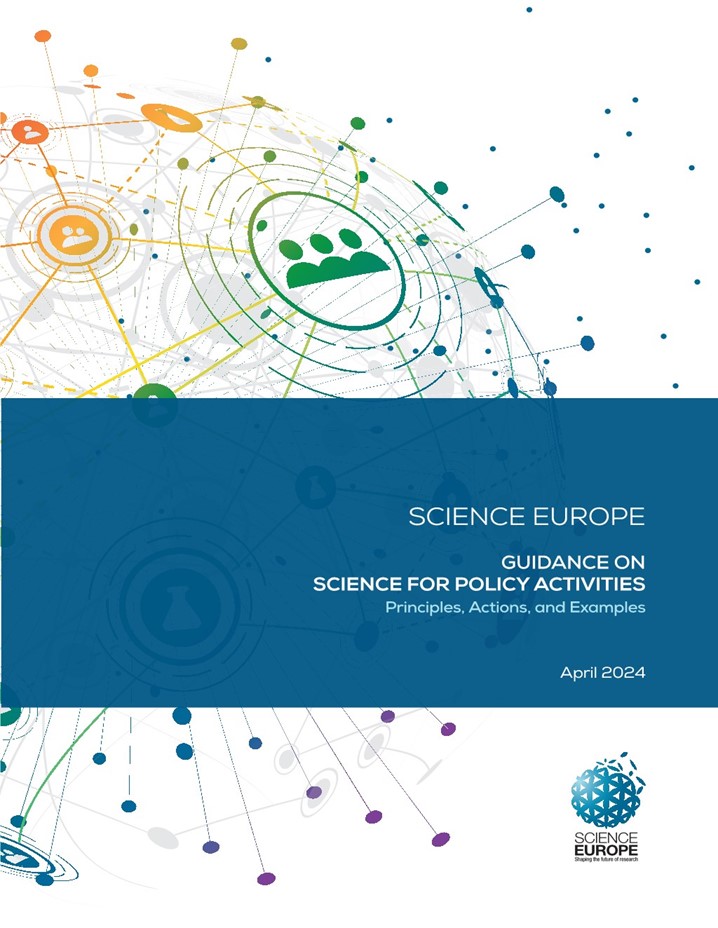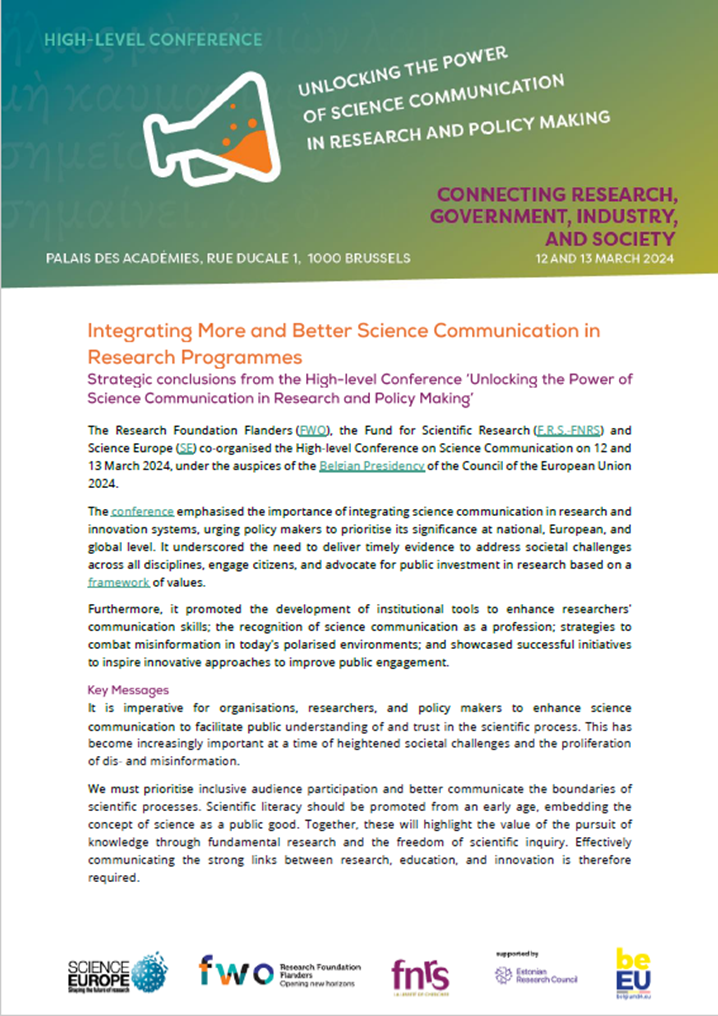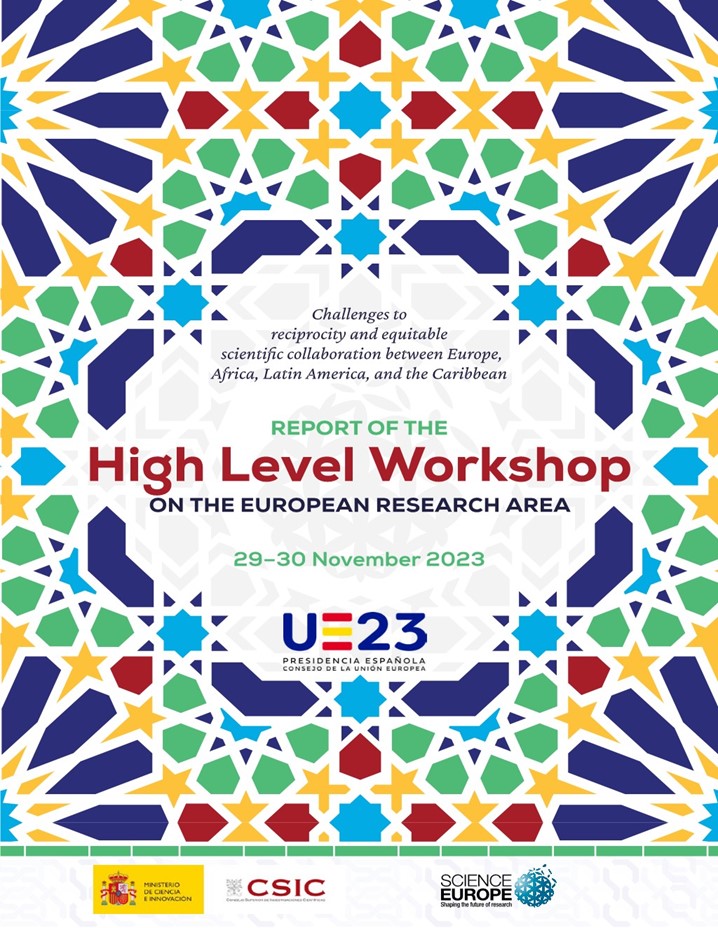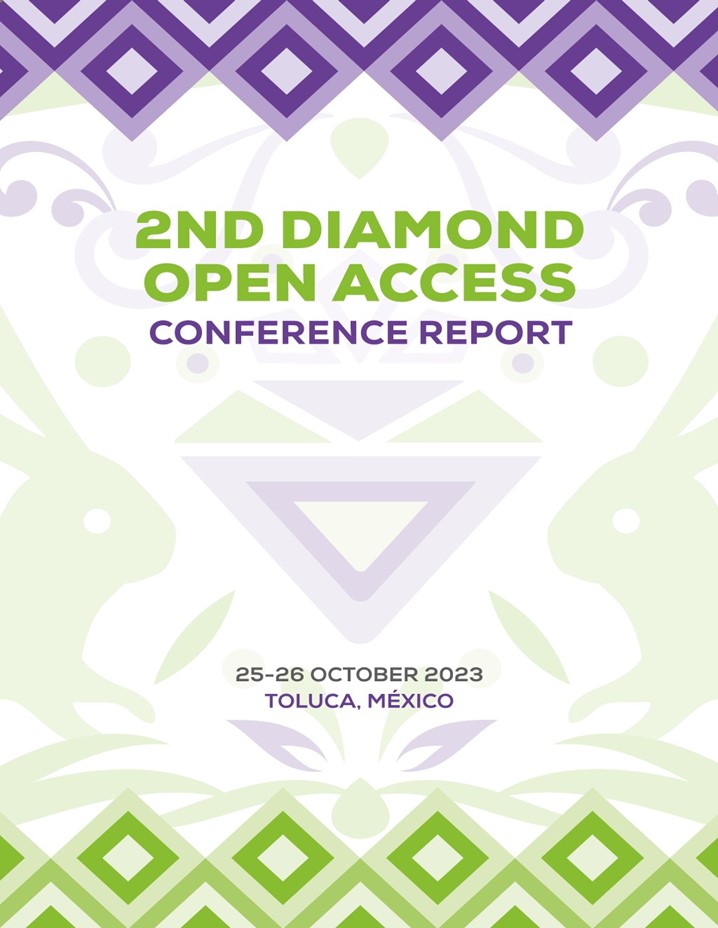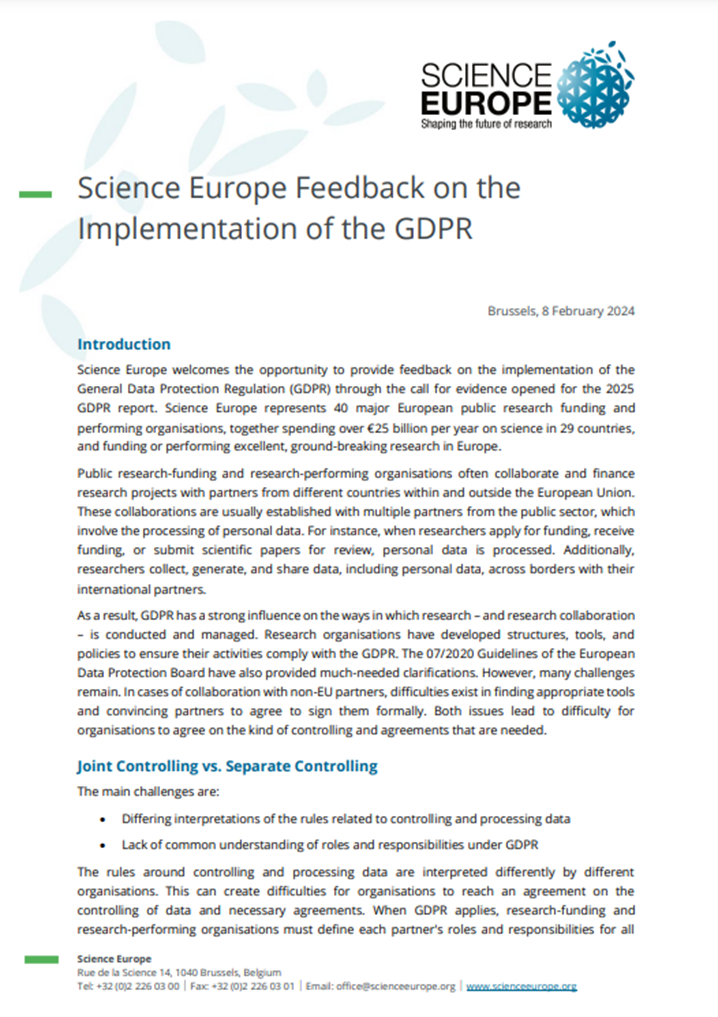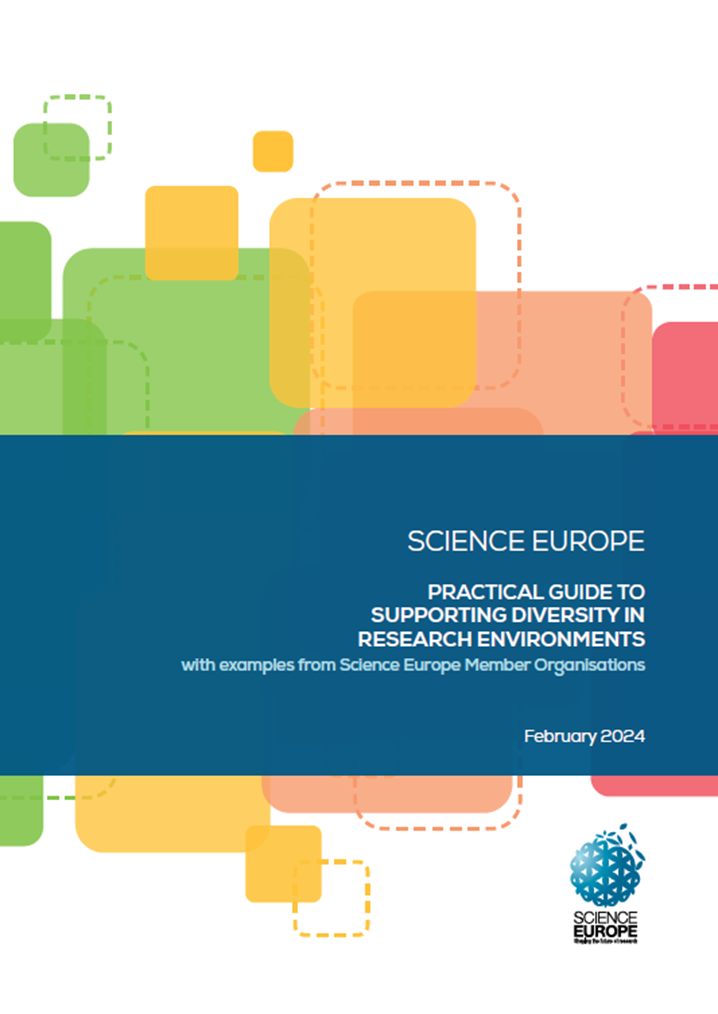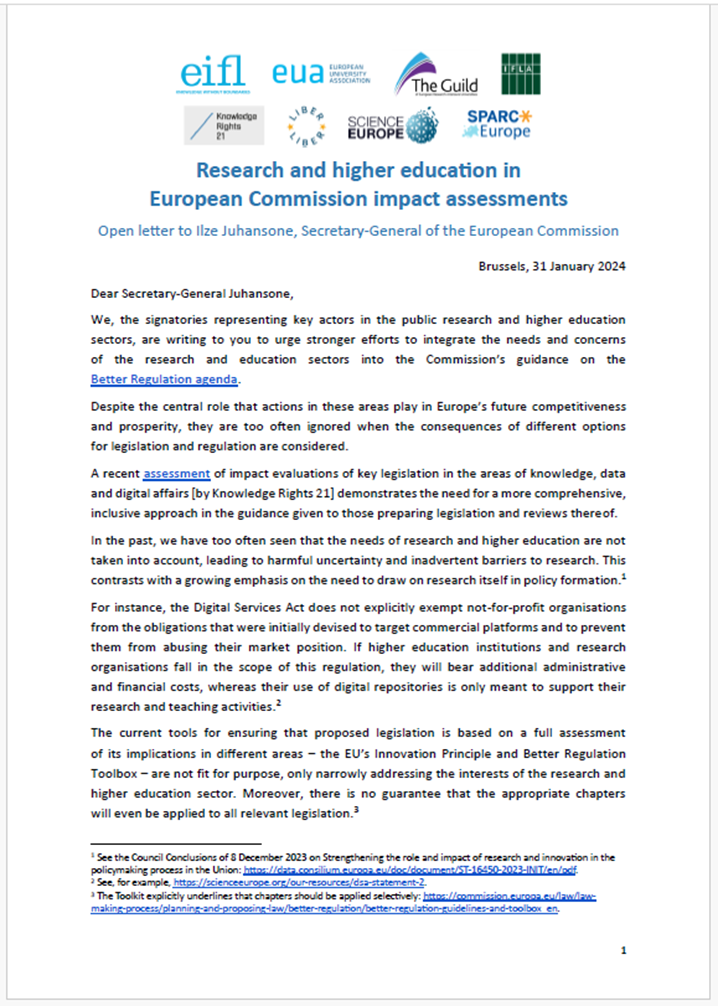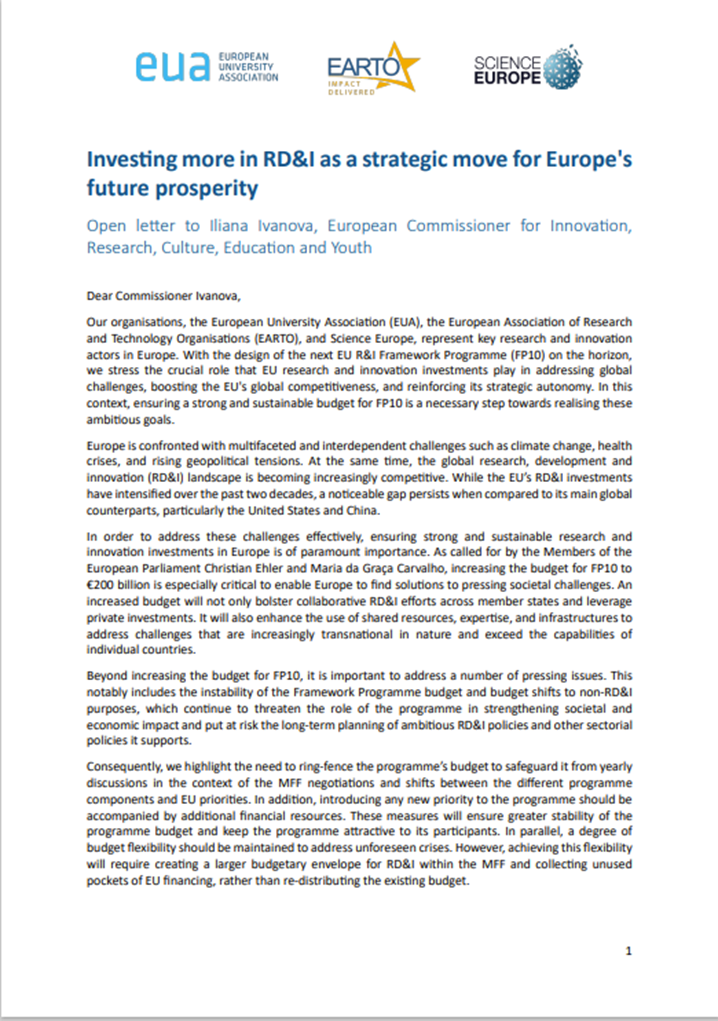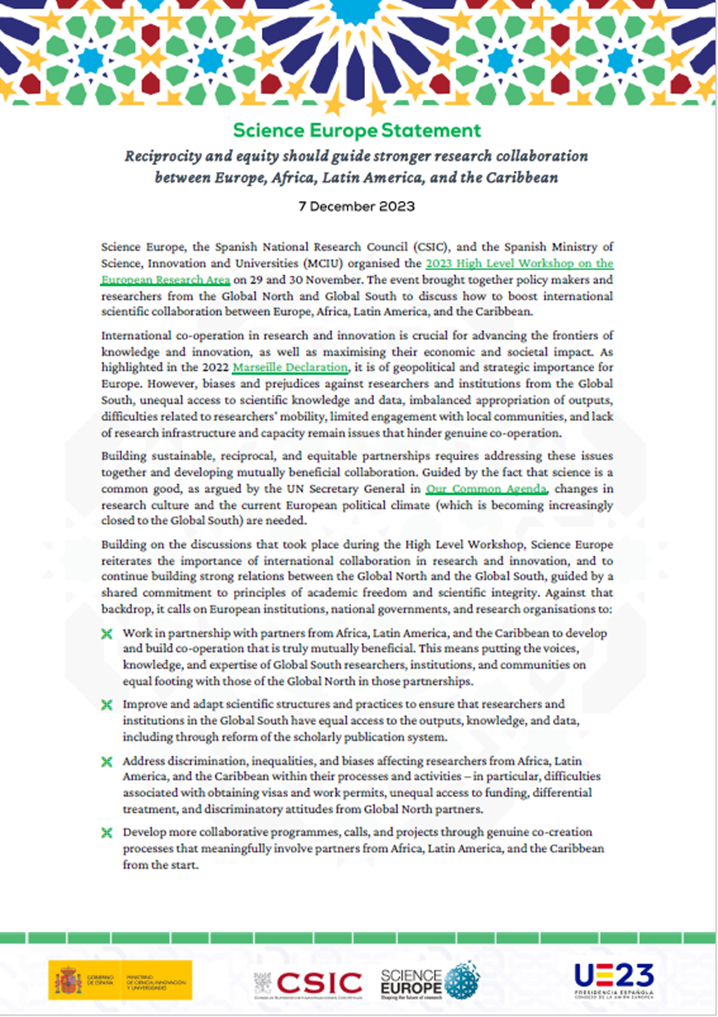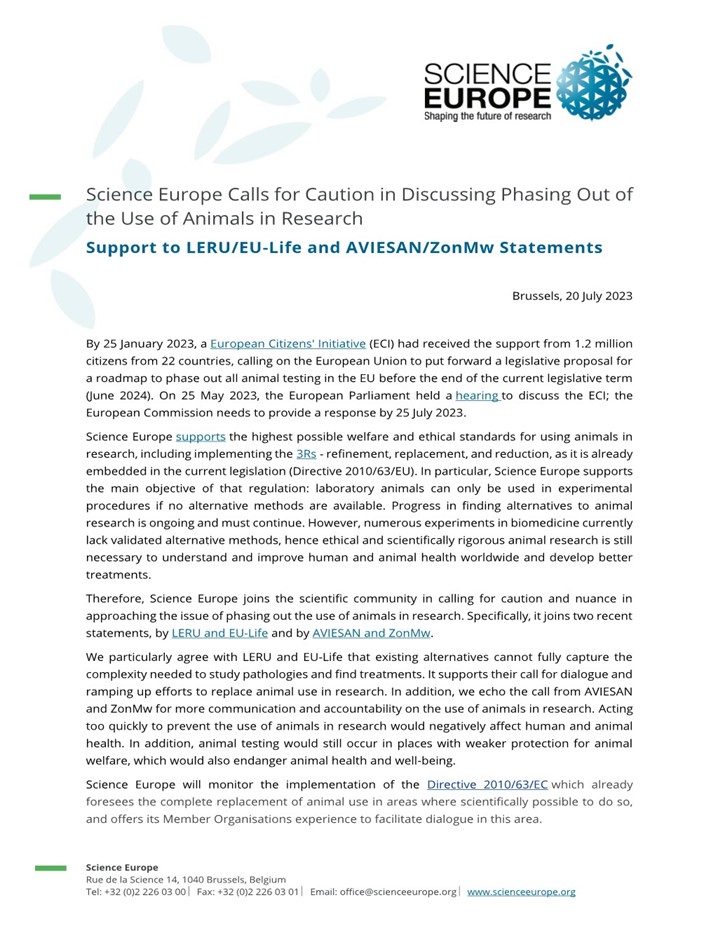Member-only content is available on this page. Please log in to view this content.
- Download
-
Share on
How to Transform Big Data into Better Health: Envisioning a Health Big Data Ecosystem for Advancing Biomedical Research and Improving Health Outcomes in Europe
This report – which consolidates the outcomes of a two day workshop co-hosted with the Italian National Institute for Nuclear Physics (INFN) in November 2015 – identifies and acknowledges the challenges in transforming big data into better health and makes a number of key recommendations.
Download resourceRelated content
Guidance on Science for Policy Activities
Science can and should support policy- and decision makers by providing rigorous evidence to increase understanding of problems and assess available options. This guidance aims to support the development of 'Science for Policy' activities in research organisations.
Report of the 2023 High Level Workshop on the ERA
This report presents the discussions and outcomes of the main and satellite events held as part of the 2023 High Level Workshop on the ERA. This edition of the event dealt with international scientific collaboration between Europe, Africa, Latin America, and the Caribbean, based on principles of reciprocity and equity.
Report of the 2nd Diamond Open Access Conference
The event report of the second Diamond Open Access Conference (25–26 October 2023, Toluca, México), showcases good practices and policies for Diamond Open Access from across the world. The conference focused on the key features of infrastructure, policy development, governance, research evaluation and recognition, and sustainability.
Science Europe Feedback on the implementation of the GDPR
Science Europe has provided feedback to the European Commission on the implementation of the General Data Protection Regulation (GDPR) through the call for evidence opened for the 2025 GDPR report.
Practical Guide to Supporting Diversity in Research Environments
Science Europe’s new ‘Practical Guide to Supporting Diversity in Research Environments’ highlights key findings from a membership survey conducted in 2023, showcases good practices, and provides practical recommendations across topics such as positive action measures and the collection and use of diversity data.
Open Letter: European Research and Higher Education Organisations Call On Commission Not to Neglect Their Needs in Lawmaking
Science Europe, along with 7 other Organisations released an open letter today addressed to Ilze Juhansone, Secretary-General of the European Commission, and colleagues demanding the Commission prioritise research and education in its ex-ante impact assessment process.
Statement on International Research Collaboration
This statement presents some of the high-level outcomes from the 2023 High Level Workshop on 'Challenges to Reciprocity and Equitable Collaboration between Europe, Africa, Latin America, and the Caribbean'.
Science Europe Calls for Caution in Discussing Phasing Out of the Use of Animals in Research
Science Europe supports the scientific community in calling for caution and nuance in approaching the issue of phasing out the use of animals in research, and endorses statements by several stakeholders.

